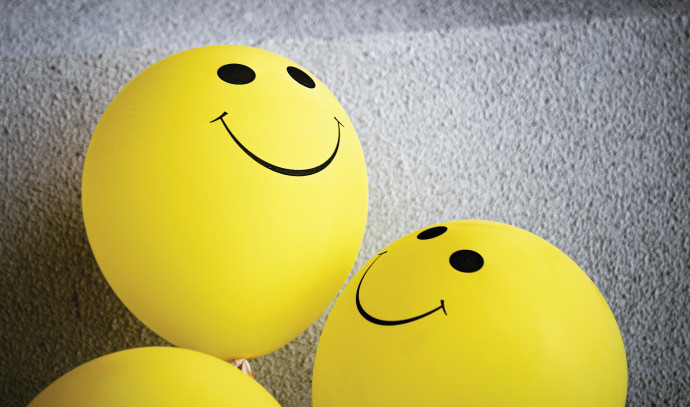Many people think that post-COVID life should have us all feeling relieved, grateful to have made it through three difficult years and content both in general and in our relationships. Sadly, many people are feeling overwhelmed at home and with life in general as they attempt to re-enter their post-COVID world.
We have all changed, want different things for ourselves now, and the world in many ways feels even more topsy-turvy than before. For many, there were joys to be had working from home in pajamas, in a less pressured environment. For others, more stressed by blurred boundaries, achieving a better work/life balance has felt impossible as the greater societal woes have seemed to mix with their own personal issues, creating havoc and a need to redefine what they now want.
If there was a positive lesson we were meant to take away from the pandemic, many would agree that for the most part, it has been missed; we are suffering on a macro level, as well as individually – on a more micro level – in our relationships. Today’s column will focus on both.
Having recently celebrated our nation’s 75th birthday, we have much to be proud of and thankful for in being blessed to be able to live here. With the tremendous infighting over the past several months, one might think we don’t appreciate any of it, but 1,000 missiles later, and when my former next-door neighbor Noa Kirel represented us in Eurovision, we were reminded of just how unified we could be when sharing common values and interests. It also feels so much better to focus on what unites us and what we can achieve together, big and small, instead of constantly highlighting our differences and criticizing anyone who may not be a clone of ourselves.
While exhausted and overwhelmed as a country, it behooves each of us to rise up in spite of our malaise, and come up with an action plan that strengthens us all.
AS WE move forward, we too must ask ourselves, individually and as a society, how we can best look after one another. Here are some thoughts.
1. Focus on the positive.
Constant criticism is bad for our morale. John Gottman, a well-known psychologist, talks about the need for five positives for every negative statement within a relationship. Our actions do make a huge difference and although it may seem as if we have a lot of work to do in this area, simply “noticing” the positives in others, and commenting on them, can feel very good. Just imagine, for example, how different the tone in the Knesset might be.
2. Treat others as equals and in the way you would like to be treated.
We live in a melting pot with a multitude of cultures. Each person has something valuable to contribute to society, and we have much to learn from one another by simply being open to seeing it. As an Ashkenazi immigrant, I love the warmth of the Sephardi in-law family members of one of our children, as well as hearing about life on the kibbutz firsthand from our other in-laws whose family has lived here for 12 generations. Their customs and traditions are incredibly special.
3. Listen empathically to others.
It’s not an accident that we have two ears but only one mouth. This reminds us that we need to listen twice as much as we need to speak. Being an empathic listener means that you actively listen to others and validate their feelings. It is not relevant if you agree or not. Your goal is to be non-judgmental and to simply be there for them.
4. Give people the benefit of the doubt.
Others are bound to do things that you don’t understand. It is easy to “react”; however, taking a step back, breathing slowly and calming your body can help you better focus on seeing a situation in a better light. Just imagine how this one step could help diminish road rage. We also know how easy it is to be misunderstood on social media when messages are abbreviated and emojis get misinterpreted, leaving people confused and trying to determine if a message was sent in jest or in anger.
5. Speak respectfully to others.
How we speak to one another and how we disagree with one another impacts every aspect of our relationships. Each one of us must take responsibility for the content of our conversations, as well as our actions. While it is so easy to point a finger and blame the next person, it is even more important to look inward, take responsibility for your actions, and ask yourself just how respectful you are to those with whom you come in contact. When using your cellphone, keep it on silent and take your conversations elsewhere so as not to disturb others. As you examine how you communicate with your loved ones, colleagues, friends and as a community, can you see the effect your words and actions might have?
6. Don’t gossip.
While many people like to gossip, they may be unaware of the impact it can have on the person being spoken about and, in the end, on themselves. We would all be wise to pause, think before we speak about what we want to say, and ask ourselves how we want to say it. How too in the reverse would we want to hear it? What are you hoping to achieve? That will help determine how it gets heard.
7. Be present.
As you multi-task, you may feel overburdened by having too many big and small things going on throughout the day; you may find yourself sitting on the phone for hours waiting for a service representative to answer, or at the computer because you are too tired to be productive or prefer passive entertainment. It is easy to lose focus and forget what your goal is. You may just need to remind yourself along the way what it is and assess how you can achieve it – and whether your expectations are realistic!
8. Step out of your comfort zone and do something nice for someone else.
Go out of your way to try to anticipate what others may need or want – and see if you can help bring it to fruition. The enormous amount of hessed (kindness), around us is truly amazing. People here open their homes, their hearts and their pocketbooks in a way that should have us all bursting with pride. Add to this our response on a national level to disasters throughout the world.
Hopefully, these serve as a reminder of all that you would like to pay forward while acting as a role model for the next generation. Teaching your children how important it is to look after each other is one of the best gifts you can give. What you offer does not have to be huge. It has to come with a generous attitude and a smile. You might be surprised by how much that in itself is appreciated.
9. Let things go.
It is so easy to get bogged down and stressed by issues that are now over and in many ways are no longer relevant. Since they have already happened and there is nothing you can do about them, your task is to move on. Remember, you can only be in control of what you can be in control of. This is a reminder to live in the present. When you do this effectively, you realize that for the most part, you really are okay in this moment.
10. Don’t procrastinate.
It is so easy to put things off, hoping that you won’t have to deal with it at all. Even a comment such as “I will be happy when…” implies that you are waiting. Time is precious and that time is now.
While the suggestions above won’t entirely cure our collective malaise, they can definitely help to reduce our stress, fatigue, burnout and sense of being overwhelmed. You are being asked to be a giver as you interact with others. This can help make each one of us to become more sensitively attuned to those around us, which in turn will strengthen us during these not so easy times.
The writer is a licensed clinical psychologist in private practice in Ra’anana, and author of Life’s Journey: Exploring Relationships – Resolving Conflicts. She has written about psychology in The Jerusalem Post since 2000. ludman@netvision.net.il; www.drbatyaludman.com



